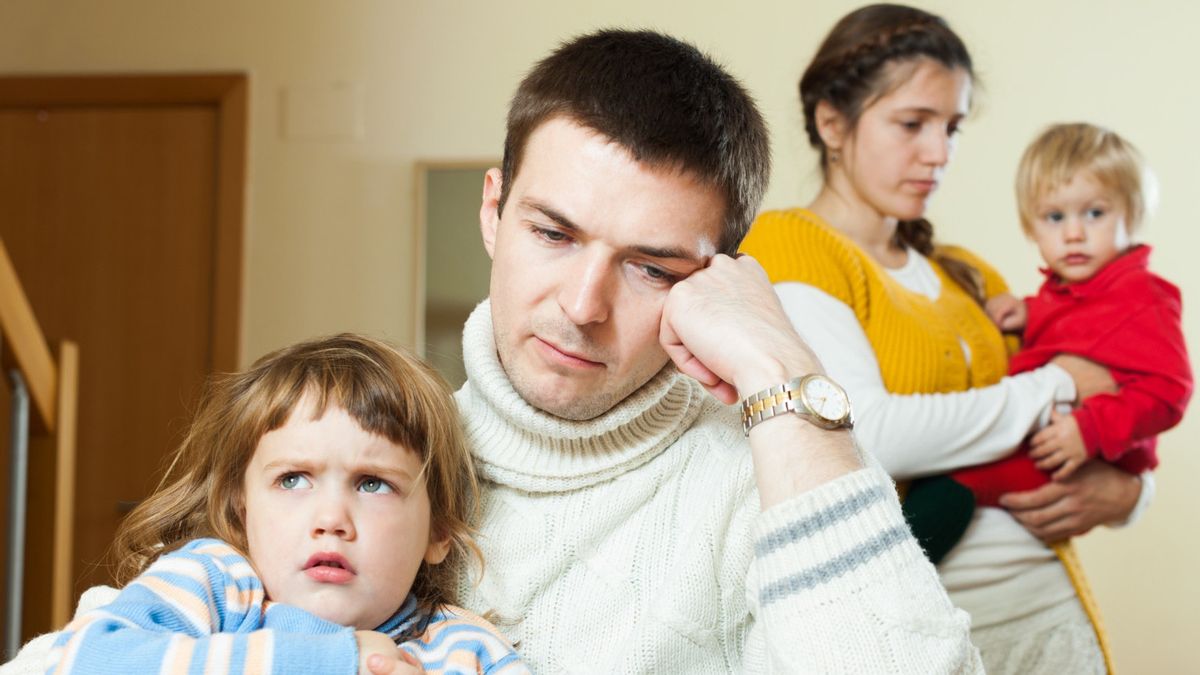YOGYAKARTA Parents who have children, have the task of providing parenting and need a mature level of emotional maturity. However, because the process of caring for children requires continuous learning, there are times when parents need to reflect and know the level of maturity. This is a key pattern so that trauma between generations is not maintained from generation to generation.
An emotionally mature person seems to grow up with emotional parents. For example, not having emotional closeness to his parents and repeating distances from his children. For this reason, it is necessary to recognize that emotional maturity is not characterized by the following attitude.
Parents who drive and control their children are known as parents who apply helicopter parenting. By applying this parenting, you demand perfection and set high demands that are often unrealistic both in yourself and your children.
Launching Psychology Today, Wednesday, June 7, these parents may be parents with high levels of negative emotions without control. For example, with excessive anger or from a punishment approach. Children who are cared for like this often become perfectionists, excel, and are very critical.
Parents who do not control their emotions, can change from one emotion to another. They seem too dramatic, overreact to certain situations, or appear helpless, and needy. On the other hand, parents who are too emotional can be distant, cynical, underestimated, or cold to their children.
Often parents with irregular emotions may experience immutable trauma of entanglement. So they nurture their children from irregular entanglement. Children who are raised with parental patterns like this, may grow in anxiety, depression, and emotional disorder. This means that parenting can have a negative impact on the emotional maturity of their relationship and risk developing a traumatic bond with their partner later.
Parents who refuse their role in raising children, usually avoid, stay away, and may spend time alone or don't want to be disturbed by parenting. Parents with this lack of maturity, seem to be raised in a similar pattern. They grew up to take care of themselves so they don't undergo an assertive communication pattern and often become prosecutors and communicate roughly.
Children raised are not emotionally close to their parents, perhaps becoming adults who have limited empathy. They are also morelittle, avoid, and even find it difficult to maintain relationships based on the emotional aspect.
passive parents often neglect to involve emotional aspects. They also avoid confrontation and may not get along easily. Many parents who are passive do not have healthy and consistent boundaries. They can't even be friends with their children. They may ignore their child's emotional needs because they are too much for them to handle.
SEE ALSO:
Exceededed by parents who are emotionally and physically passive causes the risk of anxiety and depression. Children who are not emotionally supported by their parents may have difficulty expressing emotions.
Those are the four signs that parents lack emotional maturity levels. Through the list above, you can reflect and evaluate things that can be improved so as to support the growth and development of the baby so that it is optimal without being prone to mental health disorders.
The English, Chinese, Japanese, Arabic, and French versions are automatically generated by the AI. So there may still be inaccuracies in translating, please always see Indonesian as our main language. (system supported by DigitalSiber.id)


















